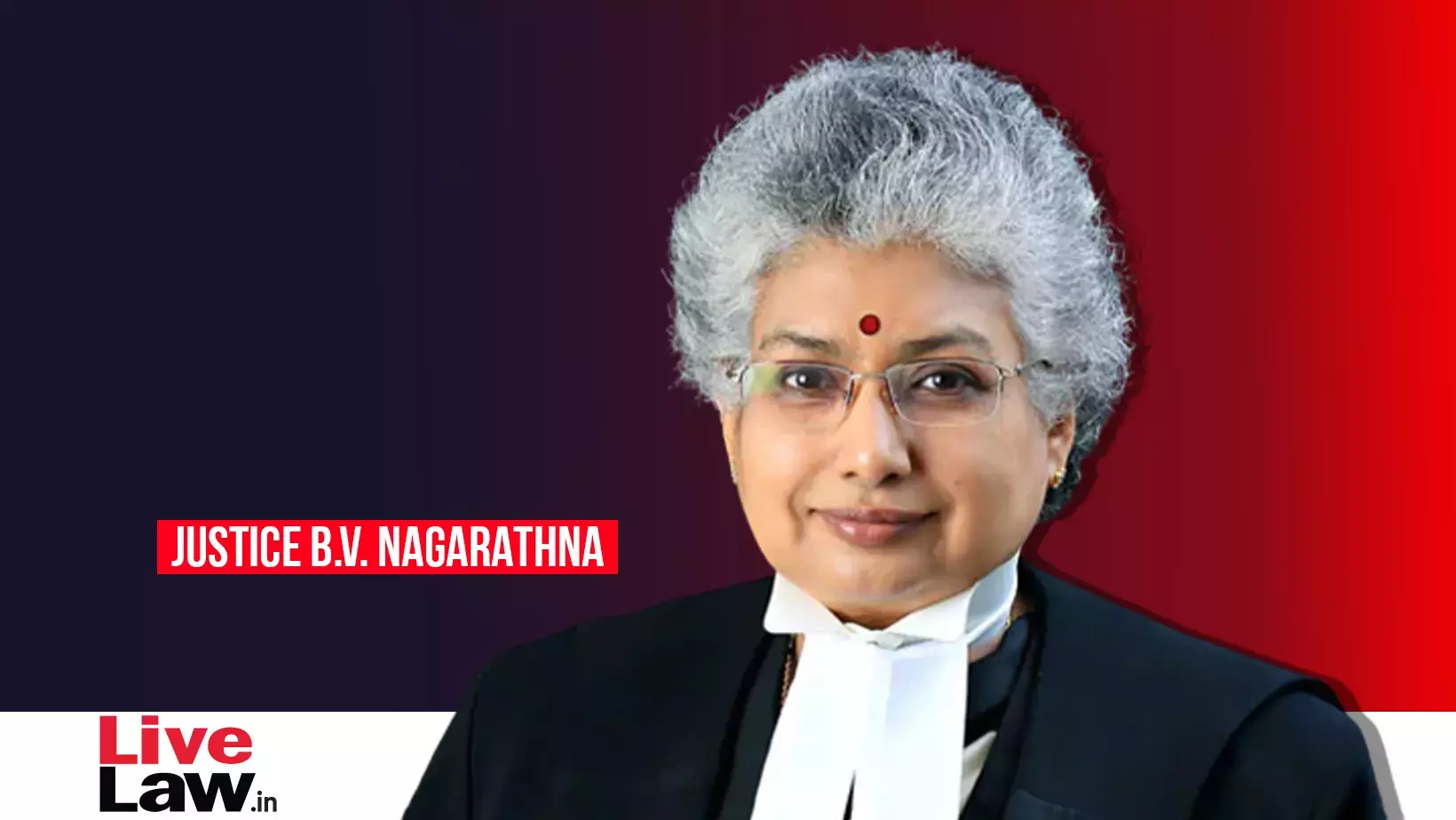Governors Must Discharge Their Duties In Accordance With Constitution : Justice BV Nagarathna
Anmol Kaur Bawa
30 March 2024 5:27 PM IST

Next Story
30 March 2024 5:27 PM IST
Expressing concerns over the recent trend of State Governors facing litigation at the instance of State Governments over their refusal to give assent to bills, Supreme Court judge Justice BV Nagarathna stated that the Governors must act in accordance with the Constitution.Speaking at the "Courts and The Constitution Conference" organised by NALSAR University, Hyderabad, Justice Nagarathna...
